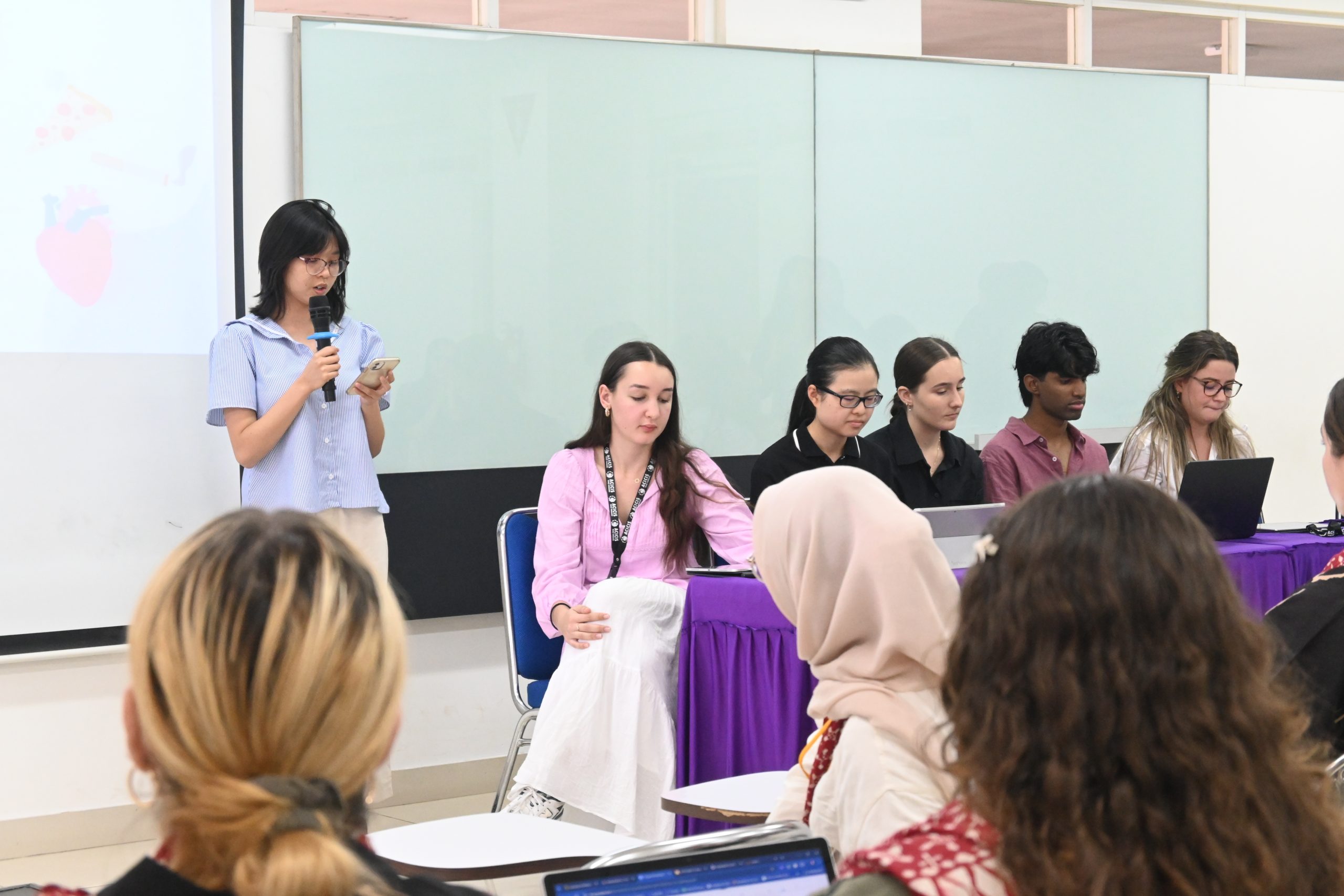The Faculty of Public Health (FPH) at the Universitas Indonesia (UI) became one of the destinations for the Public Health Study Tour (PHST) organized by ACICIS (Australian Consortium for In-Country Indonesian Studies) from July 8-20, 2024, in two cities: Jakarta and Yogyakarta. This PHST is the 16th edition held at FPH UI since 2016.
The Public Health Study Tour is an intensive two-week program that allows international students, in this case from Australia, to learn through interactive lectures and field visits to gain experience in public health in Indonesia. The topics of the interactive lecture series include Health Systems, Infectious and Non-Communicable Diseases, Population Development, Mental Health, and more. Meanwhile, field visits will be conducted in urban, suburban, and rural areas, both in Jakarta and its surrounding areas like West Java, as well as in Yogyakarta, the next PHST destination. Accompanied by Dr. Emily Rowe as the PHST Tour Leader for the Winter 2024 Tour, the 34 participants were divided into six groups, with each group being assisted by a buddy from FPH UI. Participants came from eight Australian universities: Australian National University, Monash University, Queensland University of Technology, The University of Adelaide, The University of Queensland, The University of Sydney, The University of Western Australia, and University of Technology Sydney.
“This month, we are starting a new batch, the 16th cohort, of the Public Health Study Tour program, jointly organized by FPH UI and ACICIS. As we know, this program has been successfully running since 2016. We hope that through all the planned activities, the students will have the opportunity to learn and exchange ideas about public health issues and programs, and ultimately build friendships and networks among all participants,” said the Dean of FPH UI, Prof. dr. Mondastri Korib Sudaryo, M.S., D.Sc., warmly welcoming the participants of Public Health Study Tour 2024.
At the final session of the PHST program at FPH UI, the participants had the opportunity to engage in group discussions, where each group was given the chance to present their topic, covering responses and recommendations discussed, based on public health issues in Indonesia.
Various topics were raised by each group, covering areas such as environmental health, nutrition, and disaster response in Indonesia. Some specific topics presented included food safety, neglected tropical diseases, the impact of climate change on maternal and child health, neonatal stunting, non-communicable diseases, and the involvement of healthcare workers in natural disaster events in Indonesia.
Food Safety was the topic presented by Group 6, which focused on food safety conditions in traditional markets and online food sales, which have seen an increasing trend in Indonesia. The challenge identified was the lack of effective food education. This lack of impact is evident in many home industries that do not know or apply food safety standards to meet the required food product regulations. This issue is compounded by the lengthy administrative process in obtaining the necessary standards and licenses for food products.
Therefore, Group 6 recommended providing more effective food safety education and better training for household businesses to meet food safety standards. Integrated communication and implementation from stakeholders are also needed, especially in making it easier to issue licenses and certifications to traders so they can produce and sell food products in compliance with the regulations in Indonesia.
Neglected Tropical Diseases (NTDs) in Indonesia was another topic presented by Group 5. NTDs are a group of infectious diseases caused by various pathogens, including viruses, bacteria, protozoa, and parasitic worms.
Diseases such as filariasis, intestinal worms, schistosomiasis, leprosy, and frambesia are prioritized NTDs in Indonesia. The main challenge highlighted by Group 5 was the lack of awareness, stigma, and discrimination against patients. To address this issue, their recommendations included health promotion and community education as an initial step, empathy-based training focusing on providing antidepressants to patients, and the creation of a Zero-Tolerance Policy to protect against stigma and discrimination in healthcare facilities. Additionally, they emphasized the importance of improving the healthcare system and service providers in Indonesia to proactively reach people affected by these diseases, as stigmatization often prevents sufferers from seeking professional help.
“ACICIS collaborates with FPH UI to organize the Public Health Study Tour program. The goal is to introduce and provide more concrete learning materials about public health in Indonesia while also introducing the socio-cultural and economic characteristics of two different regions, Jakarta and Yogyakarta, which will be visited in the following week,” explained Nelasari, M.K.M., Secretary of FPH UI.
Saturday, July 13, 2024, marked the last day of the PHST 2024 program at FPH UI before heading to Yogyakarta. Facilitators and assessors from FPH UI were present during the presentation session, including Prof. Indri Hapsari Susilowati, S.K.M., M.K.K.K., Ph.D.; Ir. Ahmad Syafiq, M.Sc., Ph.D.; and Trisari Anggondowati, S.K.M., M.Epid., Ph.D. The PHST event concluded with a farewell ceremony presented by the buddies, which included a video presentation and expressions of gratitude to the participants who had joined the program for one week in Jakarta. (ITM)

